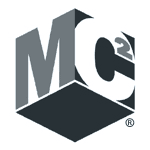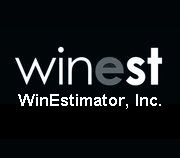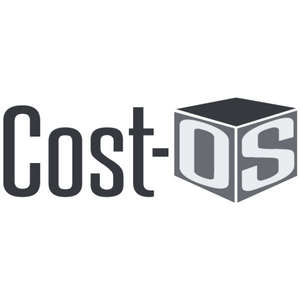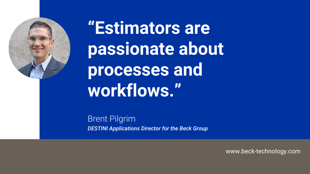Software Evaluation Made Easy
At the bottom of this blog post, you will find your free software evaluation checklist.
As a tech company, we understand the amount of time and work that goes into evaluating new estimating software.
Beck Technology is a preconstruction solutions provider that focuses on building the best estimating software for preconstruction that seamlessly integrates all your workflows—including takeoff, BIM350, Excel, and customized reporting.
Our company was founded by construction and preconstruction professionals, so we completely understand the complexities and nuances of precon. Increasing owner demands and backlogs make it nearly impossible to stop what you’re doing, switch gears and evaluate the different construction estimating software out there.
However, using outdated, disjointed, and unsupportive software is slowing you down.
50 percent of general contractors surveyed say they are planning to adopt new technology in the next 12 months. If you want to keep up with the competition, you will need the digital tools to:
- Increase your efficiencies, productivity, and collaboration
- Reduce build times
- Dive better data-backed project decisions
- Achieve sustainability goals
- Increase profitability
But where to begin? How do I choose the best construction estimating software?
Working with all sizes of contractors has taught us that there are certain criteria important to every company. Whether you are the lead in the evaluation or just passionate about improving efficiencies, you need to know what to base your decision on.
What to Look for When Evaluating Estimating Software
These three main categories in software evaluation can help you swiftly narrow down potential choices.
Features
These are the functions inside the software you need to complete your workflows. Does the software have the capability to build assemblies, does it capture your cost data, are there estimate templates and comparison dashboards, is takeoff integrated, what about construction bidding?
An example of some vital features that our 2,000+ users asked:
- Is there an autosave function?
- Does the software have an undo button?
- Are users able to work remotely?
- Is there customizable reporting?
General Requirements
General requirements speak to the capability of the vendor such as: do they have an implementation plan, and how does their maintenance, support, and training work?
Most of the companies that switched from their legacy systems like Sage, MC2, Winest, and CostOs do so because of outdated user interface, phasing out of features, lack of on-hand support, no integrations or innovation, inability to collaborate with the team, and no longer being updated.
Evaluating software features usually overshadows the general requirements but they are no less important.
Smart questions to ask an estimating software vendor:
- Do your company cultures align?
- Is their 10-year vision compatible and supportive of your company’s goals?
- How are feature requests and feedback handled?
- How often is the software updated?

Establishing a trusted partnership with your estimating software vendor ensures your success, not only in getting the most out of your software investment but also the part your precon department plays in the overall growth and profitability of your company.
Technical Requirements
Technical requirements are those questions your IT department would ask before you decide whether to move forward with the commitment to new software.
- Is this new software cloud-based, or will it have to be hosted on premises?
- Is it compatible with our company’s version of Windows?
- What is IT’s commitment to maintaining the software?
- What data security protocols are in place?
One of the biggest roadblocks general contractors report having in adopting new technology is the fear of data security. Bring IT into the conversations with the vendors you’re evaluating so your transition goes smoother by addressing these vital questions upfront.
The teams we’ve seen be the most efficient at construction estimating software evaluation are the ones who establish an evaluation team and have a software assessment template and grading score for each software.
We don’t want this process to be overwhelming for you. We’re here to help make it as easy and straightforward as we can for your team. Ready to get started? Fill out the form below to download your free software evaluation criteria checklist today!

-1.png?width=112&height=112&name=image%20(4)-1.png)














